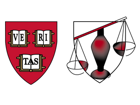Posts filed under 'Wired Podcast Series'
 David Weinberger
David Weinberger
Everything is Miscellaneous
Wired News/Berkman Center Podcast Series
In his latest interview for Wired, Berkman Fellow David Weinberger speaks with BBC News Director Richard Sambrook about the migration of news to online mediums.
As they discuss, there are a number of issues that come into play with this conversion, some that remove pre-existing controls and editorial rights that news outlets once held exclusively.
They are forced to reconsider the organization of information since a “front page” is no longer a broadsheet or a tabloid, but stretches as far down as someone is willing to scroll. And there are also more interactive tools that help the readers to decide what’s important or interesting, thereby wresting some predictability and control away from an intended focus. Their conversation continues as they address a number of other issues such interaction and fundamental change bring about.
The complete interview is available as a podcast, transcript, and MP3 download. David’s recent work, Everything is Miscellaneous, is also available on the Berkman Books page. The entire interview series with Internet luminaries is available on the Wired Blog.
June 27th, 2007
 David Weinberger
David Weinberger
Everything is Miscellaneous
Wired News/Berkman Center Podcast Series
The market for online travel information and booking seems pretty well covered by just a few dominant sites, yet Kayak.com has found a way to build off of their success with the information it aggregates. In his latest interview for Wired, Berkman Fellow David Weinberger discusses how cofounder Paul English implements the organization of information to compete in an established market.
A central principle of David’s latest work, Everything is Miscellaneous, is that the digital age has allowed users to demand and implement – instead of just imagining – their own levels of aggregation and organization. David and Paul explore this and much more in their conversation, which is available as a podcast on the Wired blog.
David’s recent work, Everything is Miscellaneous, is also available on the Berkman Books page. David’s entire interview series with Internet luminaries is available on the Wired Blog.
June 18th, 2007
 David Weinberger
David Weinberger
Everything is Miscellaneous
Wired News/Berkman Center Podcast Series
Over ten years ago Craig Newmark began Craigslist as a community site for San Francisco. Today it plays host to over 17 million posts worldwide and receives 20 million visitors each month. Amazingly Craig has maintained the intended “non-commercial” characteristics of the site, which brings with it both pros and cons.
Berkman Fellow David Weinberger recently spoke with Craig for the latest in his series of interviews for Wired. The discussed both what has made the site so successful as well as the irony of the success that came from an unstructured, non-commercial enterprise that has been slow to adapt its structure.
In spite of competition from commercial sites, Craigslist has continued to grow in popularity, which relates directly to David’s latest work Everything is Miscellaneous, where he addresses the organization of information in the digital age and how the categories and placement of information in real space is badly outdated.
The interview is available as a podcast on the Wired blog and David’s recent work, Everything is Miscellaneous, is available on the Berkman Books page. David’s entire interview series with Internet luminaries is available on the Wired Blog.
June 14th, 2007
 David Weinberger
David Weinberger
Everything is Miscellaneous
Wired News/Berkman Center Podcast Series
Jimmy Wales is a Berkman Fellow, the founder of Wikipedia, and also the latest to speak with David Weinberger in a series of interviews for Wired Magazine.
 Download the MP3 (time: 22:21).
Download the MP3 (time: 22:21).
Having founded an Internet phenomenon that is rewriting, both literally and figuratively, what we can expect from a modern collection of information, Jimmy has a one of a kind perspective on what the guidelines and regulations are for a non-profit, user-generated account of everything.
In this interview, David and Jimmy talk about what the rules are for Wikipedia and how they help or hinder this unprecedented project. David’s recent work, Everything is Miscellaneous, is available on the Berkman Books page and the rest of David’s interview series with Internet luminaries is available on the Wired Blog.
June 4th, 2007
 David Weinberger
David Weinberger
Everything is Miscellaneous
Wired News/Berkman Center Podcast Series
by Dylan Tweney:
“Neil DeGrasse Tyson is an astrophysicist who doesn’t believe in planets. Of course he knows that there are large objects circling the Sun. He just doesn’t believe that picking out nine of them — or eight, now that Pluto has been demoted — has any scientific basis. There are far more interesting ways of dividing up the universe. For example, there are four bodies in our solar system that have atmospheres — three planets and one moon of Saturn — and having an atmosphere is far more interesting scientifically than simply being a big object because having an atmosphere raises lots of questions and possibilties. Being big raises nothing but the question, ‘Well, so how exactly big are you, anyway?’
David Weinberger, author of Everything is Miscellaneous, recently talked with Dr. Tyson about why we humans have insisted on acting as if there’s only one way to slice up a universe that is far more miscellaneous than that.
This podcast interview is the fourth in a series sponsored by Wired News and the Harvard Berkman Center for Internet & Society.”
 Download the audio MP3 file.
Download the audio MP3 file.
- Subscribe to the RSS feed for this series.
May 23rd, 2007
 David Weinberger
David Weinberger
Everything is Miscellaneous
Wired News/Berkman Center Podcast Series
This is the Future of the News:
The Arianna Huffington Interview
by Dylan Tweney
“The Huffington Post is an incredible Web success story. In two years it’s become a site with enormous traffic based upon the richness of its content. Is HuffingtonPost.com the future of news media? It’s partisan, of course, but in many countries — and even many American cities — newspapers overtly take sides. More important from the point of view of the miscellaneous, the Huffington Post has an abundance of bloggers and commentators, representing a wide range of progressive interests, who provide an infrastructure of ideas, facts and opinions that adds context to any story.
In this audio podcast (the third in a series sponsored by Wired News and the Harvard Berkman Center for Internet & Society) David Weinberger talks with Arianna Huffington about her site and how bloggers are reorganizing and reinventing the news.”
 Download the audio MP3 file.
Download the audio MP3 file.
- Subscribe to the RSS feed for this series.
May 16th, 2007
 David Weinberger
David Weinberger
Everything is Miscellaneous
Wired News/Berkman Center Podcast Series
Controlled Chaos: An Interview with Kos
by Dylan Tweney
“Markos Moulitsas Zúniga — better known as Kos — didn’t know what he was letting himself in for when he decided to let readers blog on his site. Now that site, the DailyKos, is one of the top sites on the Web, to a large degree because Kos let a new form of communication emerge from the bottom up.
The DailyKos is a mass site. It has hundreds of bloggers on it and hundreds of thousands of readers. According to the old mindset, at a mass site, only a few people get to speak. Otherwise, chaos ensues. But not at DailyKos, where anyone who wants to can speak, and if enough readers like what she’s saying, her voice can be heard from the front page. DailyKos thus manages to be both mass and intimate at the same time.
In this audio podcast (the second in a series sponsored by Wired News and the Harvard Berkman Center for Internet & Society) David Weinberger talks with Kos about how he arrived at this solution and whether there’s something inherently political about it.”
 Download the audio MP3 file.
Download the audio MP3 file.
- Subscribe to the RSS feed for this series.
May 9th, 2007
 David Weinberger
David Weinberger
Everything is Miscellaneous
Wired News/Berkman Center Podcast Series
Metacrap and Flickr Tags: An Interview with Cory Doctorow
by Dylan Tweeney
“Welcome to the first in a series of interviews conducted by David Weinberger, author of the new book Everything Is Miscellaneous.
In this series, which is cosponsored by Wired News and the Harvard Berkman Center for the Internet and Society, David talks with some of the leading businesspeople, scientists, and thinkers who are coming up with innovative new ways of putting ideas, information and knowledge together. Now that the digital age has blown apart traditional ways of organizing information, what’s next? Suddenly, everything is miscellaneous.
David kicks off the series by interviewing novelist, BoingBoing co-editor, digital rights activist and entrepreneur Cory Doctorow. For Cory, piling up information without strict organizational rules can be workable provided that we have sufficiently reliable metadata. The problem is that people don’t all use metadata the same way or use tags consistently, and that can be a real obstacle to making coherent sense of piles of information.
David and Cory discuss the advantages and pitfalls of explicit and implicit metadata, tags and the rules governing the use and re-use of content in commerce and culture.
In future podcasts, David will talk with political blogger Arianna Huffington, Craigslist founder Craig Newmark, astrophysicist Neil deGrasse Tyson, Kayak founder Paul English, BBC Richard Sambrook, and Markos Moulitsas Zuniga. Bookmark Epicenter’s podcast category and come back next week for the next interview!”
(Photo above by Jason Kottke)
 Download the audio MP3 file.
Download the audio MP3 file.
- Subscribe to the RSS feed for this series.
May 3rd, 2007
 David Weinberger
David Weinberger Download the audio
Download the audio 
